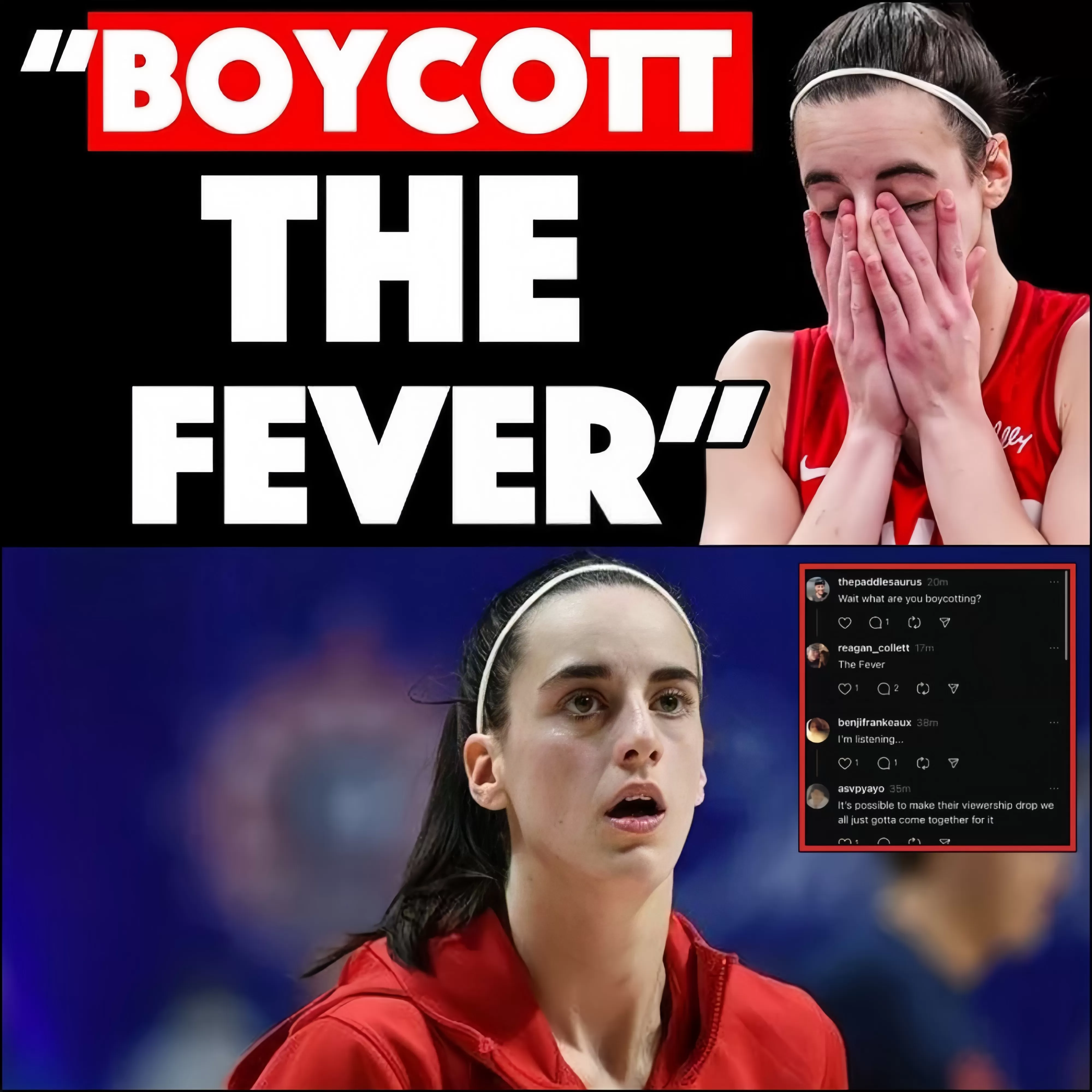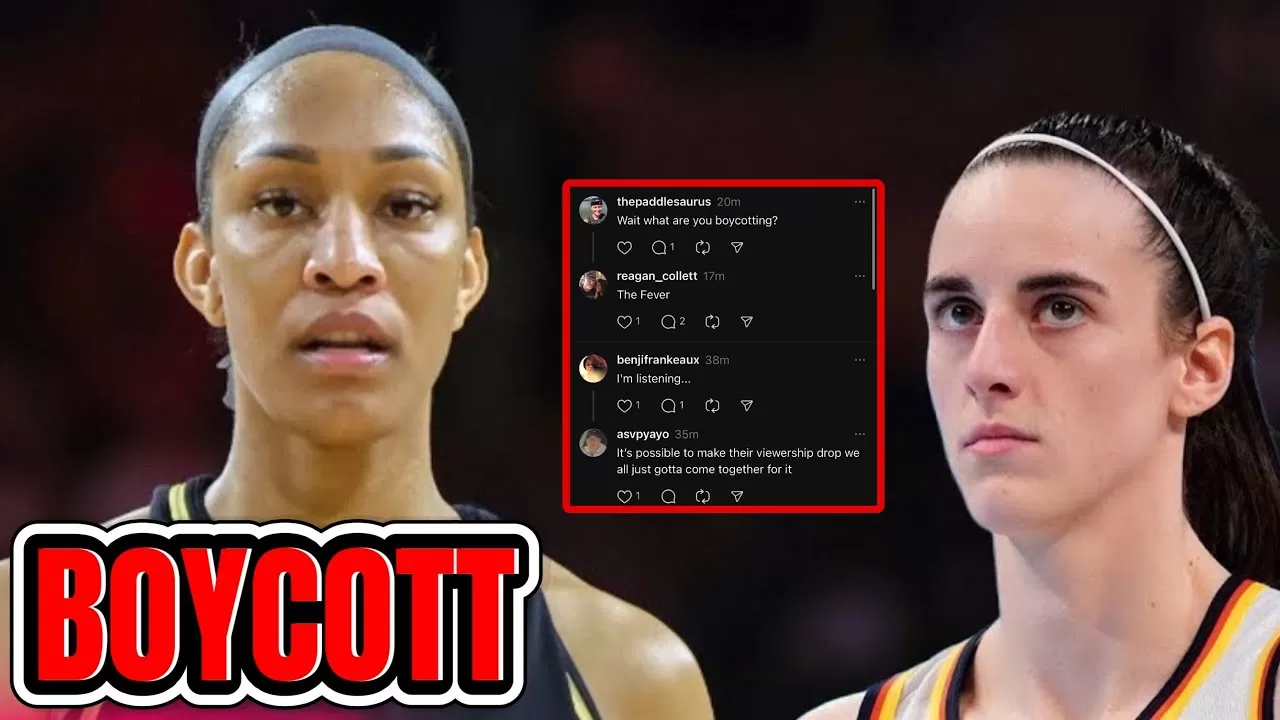A contentious debate is brewing within the Women’s National Basketball Association (WNBA) fanbase, as a vocal minority threatens to boycott games featuring Caitlin Clark and the Indiana Fever, despite the team’s unprecedented 41 nationally televised matches this season. This proposed boycott, purportedly fueled by narratives propagated by rival fan bases, raises concerns about the potential impact on the league’s burgeoning popularity and the underlying motivations driving this divisive movement.

Clark’s arrival in the WNBA has undeniably generated significant buzz, elevating the league’s profile and attracting a new wave of viewers. The Indiana Fever’s record-breaking television schedule is a testament to this phenomenon, showcasing the undeniable draw of Clark’s presence. However, this heightened visibility has also ignited controversy, with some fans expressing resentment towards Clark’s popularity and perceived preferential treatment.
According to reports and analysis of viewership data, Clark’s fanbase plays a pivotal role in driving WNBA viewership. Data analysis suggests that viewership numbers demonstrably decline when Clark is not on the court, underscoring her significant impact on the league’s overall audience engagement. This fact raises serious questions about the logic and potential self-defeating nature of a boycott aimed at diminishing the very player contributing to the league’s increased visibility and financial success.
Social media platforms, particularly Twitter, have become a battleground for this contentious debate. Fueled by online reactions and accusations of underlying agendas, the discussion surrounding the potential boycott reveals deep divisions within the WNBA community. Many fans have expressed disbelief and frustration over the purported rationale behind the boycott, questioning its legitimacy and the true motivations of its proponents.
Critics of the proposed boycott argue that deliberately refraining from supporting a team without any prior engagement is a counterintuitive form of protest. They posit that boycotting a team, and by extension the WNBA, directly contradicts the very act of supporting a sport and its players. Furthermore, some observers suggest a more insidious motive is at play, hinting at a larger agenda targeting Clark and her fanbase. This perspective underscores the perceived biases and inherent complexities within the sports media landscape.
The online discourse highlights a significant disparity between the vocal minority on social media and the broader fanbase that actively engages with WNBA games. The opinions expressed on platforms like Twitter often fail to reflect the overall sentiment and viewership statistics, leading to misinterpretations of fan behavior and motivations. This disconnect emphasizes the challenge of accurately gauging public opinion based solely on social media activity.
Furthermore, the debate has also touched upon the challenges faced by content creators on social media, with some arguing that the opinions of online personalities may not always be representative of the broader fanbase. Disagreements over the value of different viewership models have also emerged, with some fans asserting that paid viewership should hold more weight than free broadcasts – a sentiment that overlooks the crucial role of widespread accessibility in driving overall viewership growth.
Perhaps the most perplexing aspect of the proposed boycott lies in its potential to inadvertently harm the very teams and players that fans claim to support. Boycotting games can lead to diminished attendance, lower television ratings, and ultimately, reduced revenue for the WNBA, potentially impacting the livelihoods of all players and staff. The inherent contradiction of advocating for a boycott while simultaneously wanting to watch one’s favorite teams play exposes a fundamental flaw in the logic behind this movement.
The situation also raises uncomfortable questions about the undercurrents of jealousy and bias that can permeate fan reactions to prominent players like Clark. The complexities of fandom often involve subjective perceptions of success, which can sometimes manifest in negative or even hostile behavior towards individuals perceived as receiving excessive attention.
As the debate intensifies, the WNBA faces a crucial juncture. The league must navigate these turbulent waters by fostering open communication, addressing the concerns of all fans, and emphasizing the importance of unity and respect within the WNBA community. The future of the league’s rising popularity hinges on its ability to transcend these divisive narratives and ensure that the focus remains on the exceptional talent and athleticism on display on the court. The implications of a successful boycott, even a partial one, could have significant and lasting consequences for the WNBA, potentially jeopardizing the hard-earned progress and momentum it has gained in recent years. The league’s response to this challenge will be closely watched by fans, media, and stakeholders alike.






